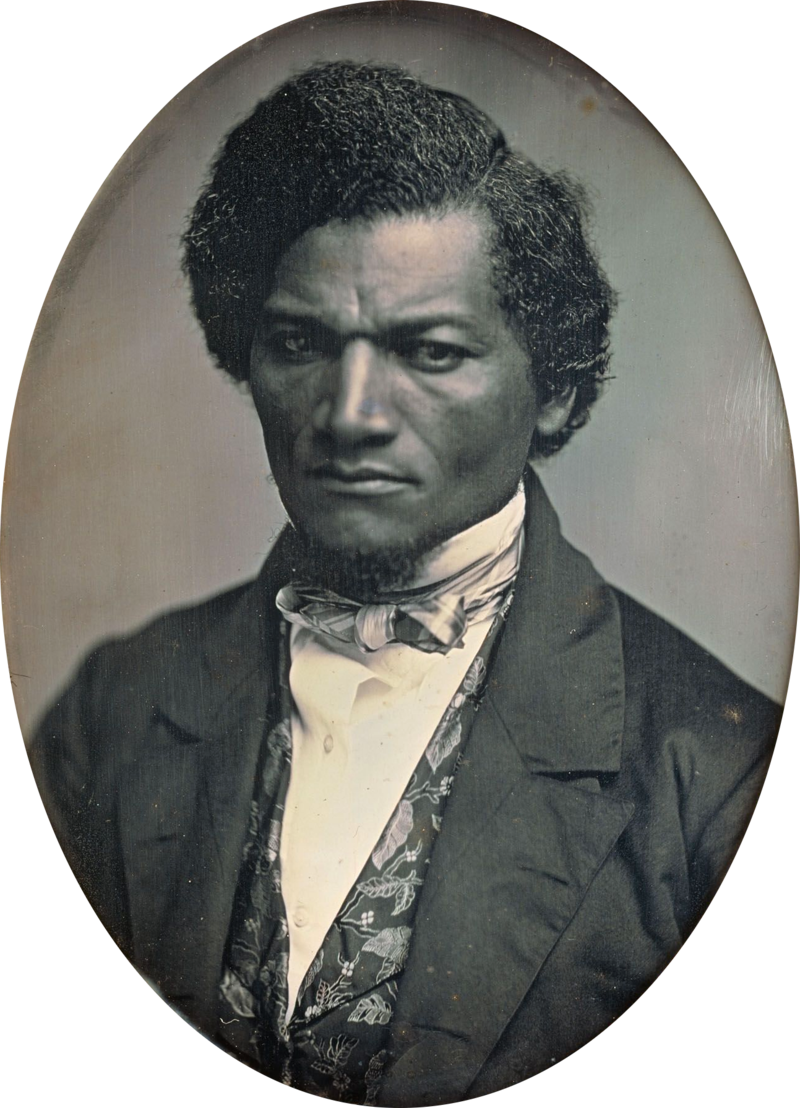
Abolitionist, orator, writer, and statesman Frederick Douglass was born 206 years ago. Having been born into slavery, Frederick Douglass was not 100% certain of his birth date, but he selected February 14th as his day of choice because he recalled his mother referring to him as her "little valentine." Douglass' memories of his mother were fleeting, as she was forcibly separated from him during childhood. She was able to sneak a few brief nighttime visits to her son, but died when he was only six years old.
Growing up, young Douglass quickly learned that keeping slaves submissive and ignorant were major tools in perpetrating slavery. In this context, nothing was as dangerous as an educated slave. When the wife of one of Douglass' owners started teaching him to read, she was swiftly discouraged from doing so by her husband. Even though the lessons ceased, Douglass was determined to learn how to read, sneaking glances at reading material and procuring lessons from white children in his neighborhood by plying them with food scraps. Eventually, he gave secret reading lessons to his fellow slaves.
In 1838, Douglass successfully escaped to New York state, where he married Anna Murray. They would be married for 44 years and have five children together. After their wedding, the couple moved to Massachusetts, fearful of anyone who might be pursuing Douglass in order to force him back into bondage.
The subsequent decade would prove productive for Douglass. His oratory career started when he was called upon to speak at an abolitionist meeting in Massachusetts. Though the request was on the spot, Douglass more than measured up to the task, sharing his experiences with such power that he was offered a position as a speaker for the American Anti-Slavery Society. He spent the 1840s traveling to make speeches, writing his first memoir, Narrative of the Life of Frederick Douglass, An American Slave, and starting his own newspaper, The North Star. When he gave the real names of his previous owners in his memoir, he had to live abroad for a few years to avoid recapture. He returned to the US when fellow abolitionists purchased his freedom.

Douglass faced a great deal of adversity throughout his life, even after escaping the bonds of slavery. Some doubted the authorship of his own work or claimed he was exaggerating his experiences. Others felt that surely no former slave could be so eloquent, yet anyone who saw him speak publicly, as he did countless times throughout his life, could deny his compelling oratorical skill. No matter what his opponents said, Douglass remained a champion of the truth, never sugarcoating the abusive nature of slavery and remaining unapologetic about his convictions throughout his life. In his later years, he campaigned for African-American suffrage and women's rights, published two more memoirs, and served in a variety of government roles under five presidents. He died in 1895 at the age of 78.
Frederick Douglass was arguably the most eloquent voice of the 19th century abolitionist movement. A former slave, he escaped bondage and became a famous orator, activist, writer, and statesman.


Add a comment to: Frederick Douglass’ 206th birthday